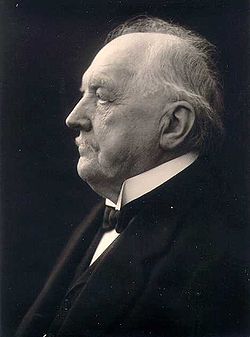Informatics Educational Institutions & Programs
Contents
Martin Kutta | |
|---|---|
 Martin Kutta (1867–1944) | |
| Born | 3 November 1867 |
| Died | 25 December 1944 (aged 77) |
| Nationality | German |
| Alma mater | University of Breslau University of Munich |
| Known for | Runge–Kutta method Zhukovsky–Kutta aerofoil Kutta–Joukowski theorem Kutta condition |
| Scientific career | |
| Fields | Mathematician |
| Institutions | University of Stuttgart RWTH Aachen Friedrich Schiller University Jena |
| Doctoral advisor | C. L. Ferdinand Lindemann Gustav A. Bauer |
| Other academic advisors | Walther Franz Anton von Dyck |
Martin Wilhelm Kutta (German: [ˈkʊta]; 3 November 1867 – 25 December 1944) was a German mathematician.
Kutta was born in Pitschen, Upper Silesia, Kingdom of Prussia (today Byczyna, Poland). He attended the University of Breslau from 1885 to 1890, and continued his studies in Munich until 1894, where he became the assistant of Walther Franz Anton von Dyck. From 1898, he spent half a year at the University of Cambridge.[1] From 1899 to 1909, he worked again as an assistant of von Dyck in Munich; from 1909 to 1910, he was adjunct professor at the Friedrich Schiller University Jena. He was professor at the RWTH Aachen from 1910 to 1912. Kutta became professor at the University of Stuttgart in 1912, where he stayed until his retirement in 1935.
In 1901, he co-developed the Runge–Kutta method, used to solve ordinary differential equations numerically. He is also remembered for the Zhukovsky–Kutta aerofoil, the Kutta–Zhukovsky theorem and the Kutta condition in aerodynamics. Kutta died in Fürstenfeldbruck, Germany in 1944.
References
- ^ "Kutta, Wilhelm Martin (KT899WM)". A Cambridge Alumni Database. University of Cambridge.
External links
- O'Connor, John J.; Robertson, Edmund F., "Martin Kutta", MacTutor History of Mathematics Archive, University of St Andrews
- Martin Kutta at the Mathematics Genealogy Project

















